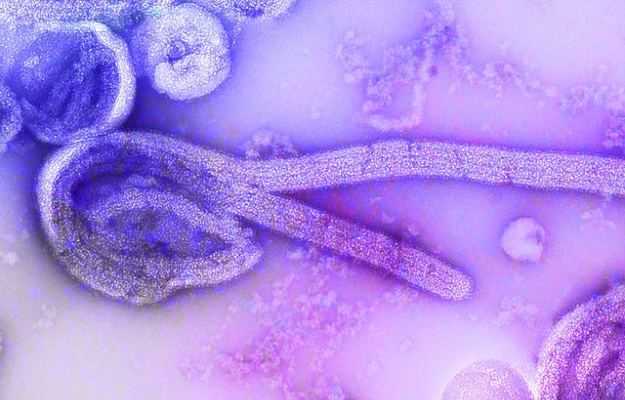Inmazeb on 14 October 2020 became the first US FDA (Food & Drug Administration) approved drug for the treatment of Ebola virus disease (Zaire/Congo strain). Inmazeb by Regeneron Pharmaceuticals has been approved as an “orphan drug” for treatment in both grown-ups and children.
"Orphan drug" is a classification that the US FDA and some other drug regulatory authorities use for medicines for rarer diseases, where profits from the sale of the drug are expected to be low. The process for receiving approval for these orphan drug is also slightly different compared with other medicines, to incentivize their research and development.
A contagious viral infection, Ebola is readily transmitted from human-to-human via direct contact with the patient’s bodily fluids (like blood, faeces and vomit), bedding and clothing, etc. Patients continue to be infectious after death. The virus can also jump from infected wild animals to human populations.
Ebola is also one of the more deadly viruses, with a case mortality rate virus of 50% on average (read more: World’s deadliest viruses). So far, there were no approved drugs for Ebola treatment. There have been drug candidates, though. Earlier this year, a failed Ebola medicine candidate—Remdesivir, an antiviral—was in the news as it was seen to reduce hospital stay (recovery time) for severe COVID-19 (with evidence of lower respiratory tract infection) from 15 days to 10 days on average.
What is Inmazeb?
Inmazeb is a cocktail of three monoclonal antibodies: atoltivimab, maftivimab and odesivimab-ebgn. And monoclonal antibodies, as we know, are infection-fighting proteins that are grown, isolated, tested and then mass-produced in a lab—these synthetically produced antibodies often amplify the benefits of convalescent plasma therapy. They also address the problem of finding enough convalescent plasma donors.
Here’s how Inmazeb works: the ebolavirus gains entry into healthy human cells using the glycoproteins attached to its outer wall. Now, glycoproteins—made up of carbohydrates (glycans) and proteins—are food for human cells so our cell receptors bind with them and let them in. Ebolavirus uses this, to enter the cells along with the glycoproteins. Once inside, the virus starts to make copies of itself. The three monoclonal antibodies in Inmazeb bind to the virus glycoproteins and block their attachment to healthy cells.
The Inmazeb trial
One-hundred-fifty-four Zaire ebolavirus patients (children and adults) received Inmazeb as part of a multicentre, randomized controlled trial with 382 patients.
The 154 patients got 50mg of each of the three monoclonal antibodies in one single shot given intravenously. The remaining 168 patients served as a control—they received other treatment but not these antibodies.
The US FDA release shared the trial findings at the end of 28 days: 33.8% of the patients who got Inmazeb died compared with 51% of patients in the control group.
Dubbed PALM, the trial was done during an outbreak in the Democratic Republic of the Congo (DRC) in 2018-2019 and was spearheaded jointly by the US National Institutes of Health (NIH) and the DRC’s Institut National de Recherche Biomédicale. The trial was coordinated by the World Health Organization.
As with most therapies, Inmazeb did have some side-effects too—mainly fever, chills, increased heartbeat, fast breathing (tachypnea), and vomiting. Some people could also have an allergic reaction to it.
Late last year, the US FDA approved the first vaccine for Ebola after it was studied during an outbreak in Guinea in 2014-2016.







